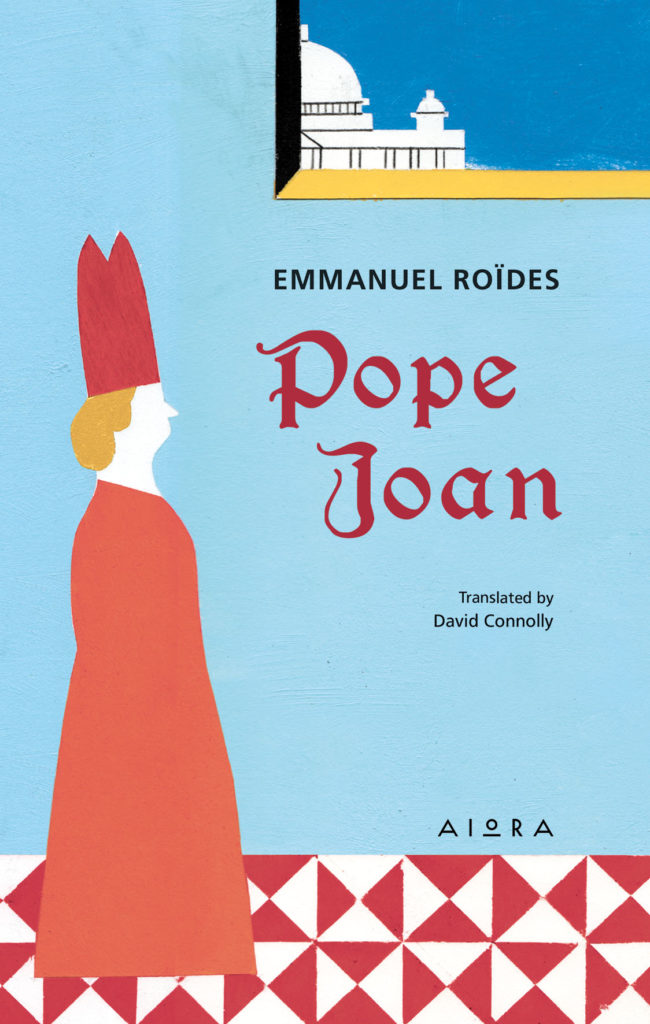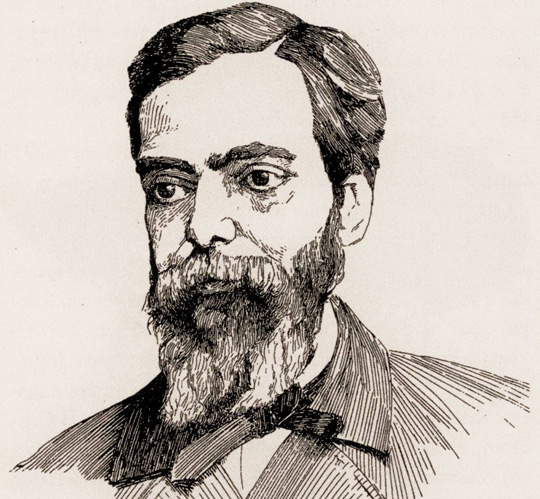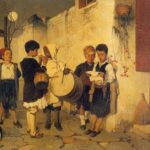Pope Joan or Papissa Ioanna as is the title of the book in Greek, was presented by Emmanuel Roïdes as a “medieval study”. It is based on the story that first appeared in 13th-century chronicles and later spread throughout Europe of a female pope, who reigned, according to some sources, from 855 to 857 AD. Different versions of the story describe her as a talented and learned woman who disguised herself as a man in order to enter the Church and follow her lover. Because of her exceptional abilities, she soon rose through the church hierarchy and was eventually elected pope.

The story was widely believed for centuries, but today it is generally regarded as fictional. In his preface “To the Reader”, Roïdes describes how he heard the story from the mouth of a newspaper editor while in a cellar in Genoa, and how, fascinated by the story, he later searched the historical facts surrounding it in the library of Berlin. In writing Pope Joan, an irreverent, witty and delightful novel masterfully translated in English by David Connolly (Aiora Press, 2019), Roïdes has created one of the most remarkable characters in modern Greek literature and in so doing has assured his place as one of its classic authors. In the words of Lawrence Durrell, “Pope Joan has a double claim on our attention for it occupies a central position among the popular books of modern Greece; and it is also in its own way a small masterpiece which might occupy a position on the bookshelf of the discerning reader midway, say, between Candide and Thaïs…”.
The truth of the legend is of little importance as the book is far more than a historical novel and, in fact, parodies the popular historical romances of the time. Published in 1866 (with successive editions in 1879 and 1882), the book immediately caused a sensation because of its caustic criticism of the catholic clergy of the time and of the Church’s traditions and customs, for the book is not just a portrait of Joan, but paints the tapestry of an entire age. Surprisingly, it was the Greek Orthodox Church that took offence, perceiving its own clergy as being the real target of this criticism and its own traditions and customs as being the object to ridicule and satire in the loosely-veiled comparison Roïdes makes between the medieval times he describes and his own times.
As might be expected, the controversy surrounding the book only enhanced Roïdes fame, while the book itself was soon translated into other European languages. In Greece, the book remained for a long time the subject of scathing criticism or, at best, a cause for perplexity among critics, who were at pains to classify it in terms of genre (historical study, romance, parody, satire?). In more recent times, however, it has come to be admired for its elegant and rhetorical style, for its inventive and striking similes and for its irony and wittiness. Today, the book is generally regarded as a comic masterpiece of modern Greek literature and remains relevant today for its satire on both secular and religious authority. As Roderick Beaton eloquently put it, Pope Joan is “the only Greek novel of the nineteenth century to have found a place, albeit a modest one, in the European canon”.
————-

Emmanuel Roïdes (1836-1904) was born into a wealthy family on the Greek island of Syros, but spent much of his childhood and early life in Europe. In 1841, his family moved to Genoa, where he lived through the revolution of 1848. He returned to Syros in 1849 and completed his schooling there, before leaving once again to pursue his university studies in history, literature and philosophy first in Germany and later in Romania. From 1864, he lived permanently in Athens. Losing his family fortune and impoverished toward the end of his life, he found work as a librarian in the National Library. Influential as a critic, he was also a translator and short-story writer, but is best known for his one novel, Pope Joan.
A.R.
Read also: Reading Greece: David Connolly – “Translators are, by definition, linguistic and cultural ambassadors and should be recognised as such”; Reading Greece: Persa Apostoli on the Picaresque Novel and its Traces in 19th Century Greek Literature
TAGS: LITERATURE & BOOKS | READING GREECE














